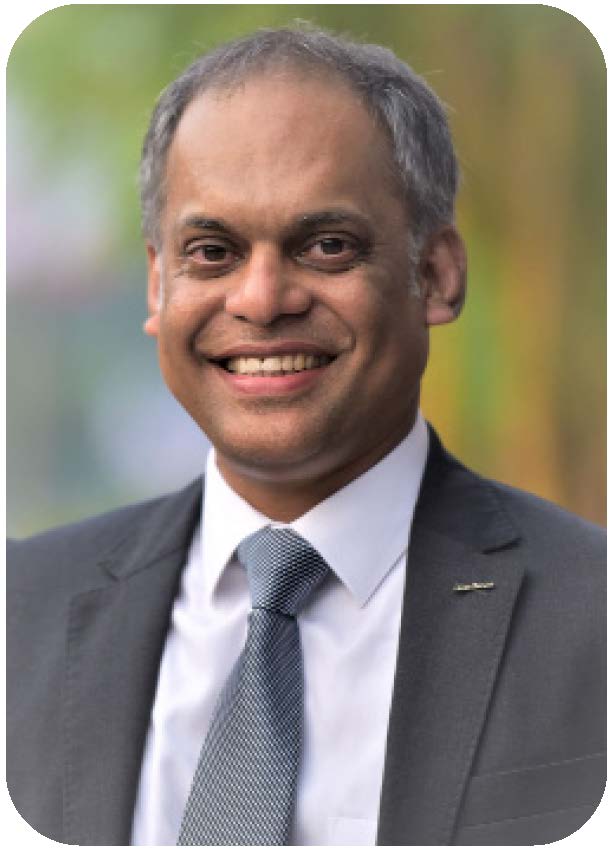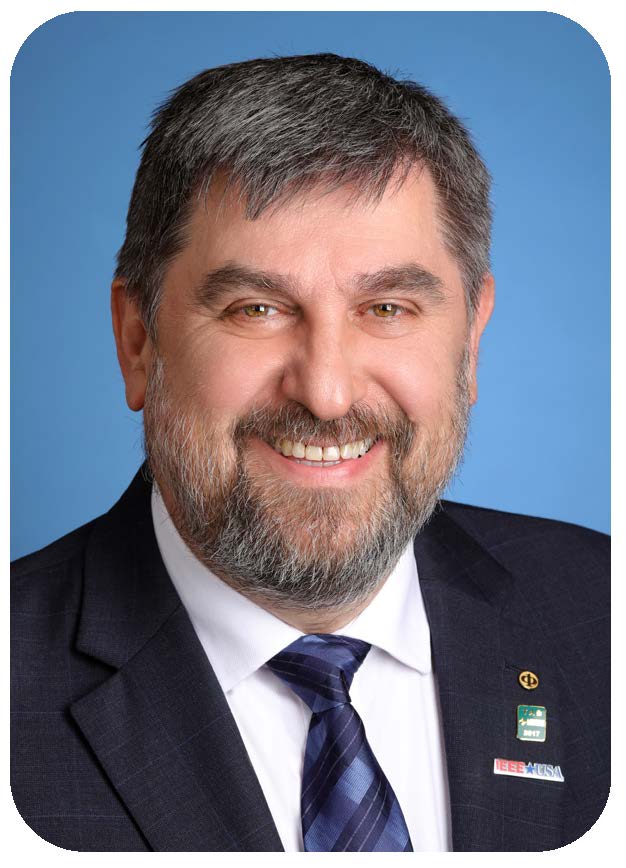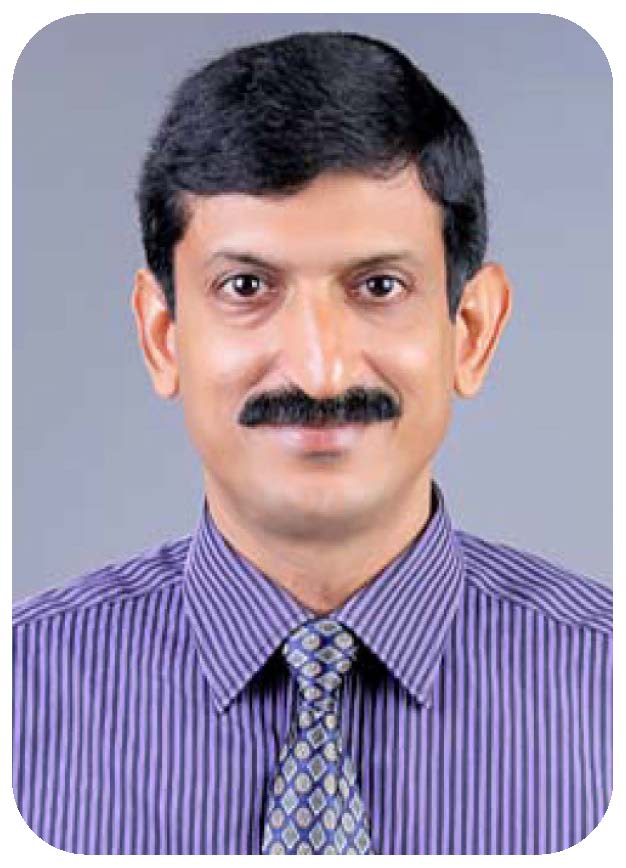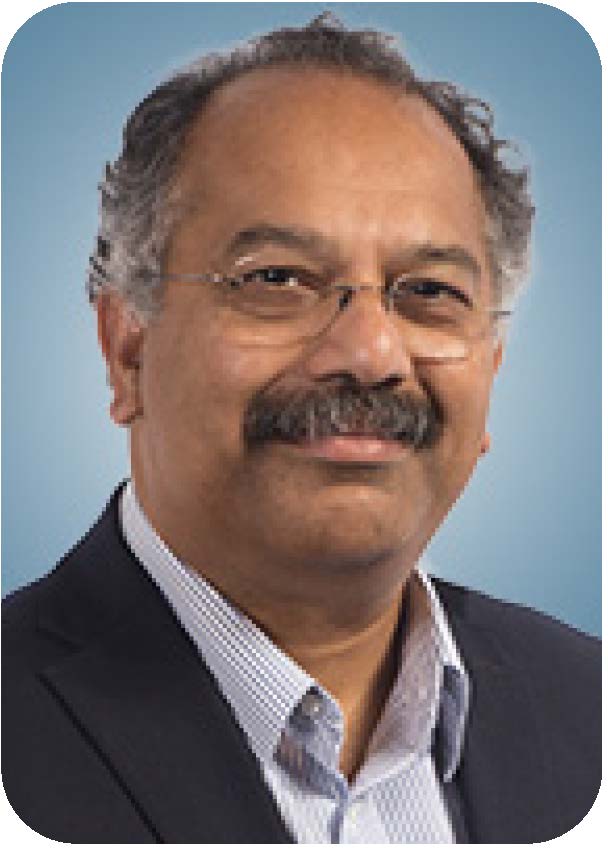
Plenary Speakers

Tony Thomas
CVP & CIO Nissan Motor Corporation
Tony Thomas serves as the Corporate Vice President and Chief Information Officer (CIO) of Nissan Motor Company, based out of Yokohama, Japan. He was appointed to that position in October of 2017. In this role, Tony is driving Information Technology, Information Systems, Data Management and Information Security across all businesses and regions and leads Nissanâs global digital transformation.
Prior to Nissan, Tony was the Global CIO for General Electric (GE) and CIO for Vodafone India. He also held global leadership roles at Citigroup, EY, etc., among other global organizations.
Tony is recognized as a luminary in his field of technology, leadership and innovation, and a recipient of many industry honors and awards. He is a mentor at Columbia University School of Professional Studies in its Executive M.S. in Technology Management Program. Tony is an active a mentor and investor in the startup ecosystem, as Board member in Corporates, an advisor and mentor to multiple Governments on IT, Start-up and Innovation policies.
Title: Sustainability with Digital Transformation
Abstract: With the vision of Zero Emission and Zero Fatality, Tony will share Nissanâs commitment to innovation for building a better future for the car buyers where cars are their partners, and drivers feel more confident and more connected. How digital transformation at Nissan is contributing majorly by converting these innovations and future technologies into a reality.

Dejan Milojicic
(Fellow, IEEE)
Distinguished Technologist at Hewlett
Packard Labs, USA
Dejan is a distinguished technologist at Hewlett Packard Labs, Palo Alto, CA (1998-) leading system software teams over 4 continents and projects with budgets of hundreds US$M. He worked at the OSF Research Institute in Cambridge, MA and at the Mihajlo Pupin Institute in Belgrade, Serbia. Milojicic received his PhD from Kaiserslautern University, Germany; and his MSc/BSc from Belgrade University, Serbia. He was a technical director of the Open Cirrus Cloud Computing Testbed, with academic, industrial and government sites in the US, Europe, and Asia. He has published 2 books and 180 papers; he has 37 granted patents. He is an IEEE Fellow (2010) and ACM Distinguished Engineer (2008). Milojicic was on 8 PhD thesis committees and taught Cloud management course at SJSU. As president of the IEEE Computer Society (2014), he started Technology Predictions, the top viewed CS news. As the industry engagement chair, he started IEEE Infrastructure'18 conference.
Title: Stretching Moore's Law: System Software for Hybrid Accelerators for Deep Learning
Abstract: The deceleration of transistor feature size scaling has motivated a growing adoption of specialized accelerators, such as GPUs, FPGAs and ASICs, and more recently new types of computing such as neuromorphic and quantum. There is a tension between specialization and generalization, former enabling raw performance improvement and latter enabling standard software stacks. This talk will address System Software functionality for memristor- based accelerators by exploring one accelerator implementation (the Dot Product Engine, or DPE) for a select pattern of applications in machine learning and neural networks. It will also describe a new instruction set architecture and accompanying software stack and toolchain, with its compiler, loader, device driver and emulators. Measurements of performance and power consumption will demonstrate that making an accelerator such as the DPE more generalized can lead to a broader adoption and better utilization.

Jong-Hwan Kim
(Fellow, IEEE),
KT Endowed Chair Professor, KAIST, KOREA.
Jong-Hwan Kim received his Ph.D. degree in Electronics Engineering from Seoul National University, Korea, in 1987. Since 1988, he has been with the School of Electrical Engineering at KAIST and is KT Endowed Chair Professor. Dr. Kim is Director of both of the KohYoung-KAIST AI Joint Research Center and Machine Intelligence and Robotics MSREP (Multi-Sponsored Research and Education Platform). His research interests include InT (Intelligence Technology), machine intelligence learning, intelligent interactive technology, AI robots. Dr. Kim has authored 5 books and 5 edited books, 2 journal special issues and over 400 refereed papers in technical journals and conference proceedings. Dr. Kim has delivered over 200 invited talks on machine intelligence and robotics including over 50 keynote speeches at the international conferences.
He served as an Associate Editor for the IEEE T. on Evolutionary Computation for 1997-2015 and the IEEE Computational Intelligence Magazine for 2008-2015. Dr. Kim was one of the co-founders of the International Conference on Simulated Evolution and Learning in 1996 and International Conference on Robot Intelligence Technology and Applications (RiTA) in 2012. His name was included in the Barons 500 Leaders for the New Century in 2000 as the Father of Robot Football. He is the founder and the organizing chair for the first AI World Cup 2018 in Korea. Dr. Kim was the recipient of the science and technology award from the President of Republic of Korea in 1997 and was elevated to IEEE Fellow in 2009.
Title: Machine Intelligence Learning for Agent-embedded Robots
Abstract: To develop agent-embedded robots with MI (Machine Intelligence), iOA (intelligence operating architecture) needs to be designed for sensing, thinking and action. The key modules of iOA are the perception module, the memory module for storing knowledge after learning, reasoning module using the mechanism of thought, and motion execution module, among others. This talk introduces recent research outcomes of the RIT laboratory on MIL (Machine Intelligence Learning) for active knowledge acquisition and adaptive knowledge application. MIL is applied to an agent-embedded robot to build MI based on iOA. This talk focuses on the development of long-term memory. The long-term memory is developed as an integrated multi-memory neural model, in which episodic memory is designed using a Deep DRN (Developmental Resonance Network) neural model, semantic memory is built using the 3D scene graph, and emotional memory is designed based on OICRN (Online Incremental Classification Resonance Network). Procedural memory is also designed using RNNCI (Recurrent Neural Network with Context Information) to store the trajectories of the manipulator along with context information and then retrieve them according to the context without any calculations and conscious thinking. The effectiveness of MIL for the agent-embedded robot is verified through experiments with a humanoid robot, Mybot, developed in the RIT Lab. Agent-embedded Mybot is introduced mainly for natural interactions including VQA (Visual Question Answering) with humans. In the last part, AI World Cup is introduced, which has three categories, AI Soccer, AI Commentator, and AI Journalist [8]. The 2nd AI World Cup will be held at KAIST on November 1-3, 2019.

Vinod A Prasad
Professor and Dean (Industry Collaboration&
Sponsored Research), IIT
Palakkad
Vinod A Prasad is a Professor in Electrical Engineering Department of IIT Palakkad and the Dean of Industry Collaboration& Sponsored Research. He has 24 years of work experience in industry and academics. Prior to joining IIT Palakkad in October 2017, Dr. Vinod has been a tenured Associate Professor in School of Computer Engineering, Nanyang Technological University (NTU), Singapore. Vinod's research interests include digital signal processing, low power, reconfigurable circuits & systems for wireless communications, Brain-Computer Interface and its applications. He has on- going and completed external research grants from various funding agencies - Ministry of Education, Singapore, Ministry of Defence, Singapore, DSO National Laboratories, Singapore, European Aeronautic Defence& Space Company, Singapore Millennium Foundation, Civil Aviation Authority of Singapore and Airbus Group Innovations amounting over $3 million as principal investigator. He has published over 240 papers in refereed international journals and international conferences. He has supervised and graduated 15 Ph.D. students and 1 Master of Engineering (By Research) student. Currently, he is guiding 5 Ph.D. students and 3 Post-doctoral Fellows. He is an Associate Editor of IEEE Transactions on Human-Machine Systems, and Associate Editor of Springer Journal of Circuits, Systems & Signal Processing, Senior Member of IEEE and Track Co-Chair (Brain-Machine Interface Systems) of IEEE Systems, Man & Cybernetics Society for which he won the award of the 'Most Active Technical Committee in Human-Machine Systems' of IEEE Systems, Man and Cybernetics Society in three consecutive years - 2015, 2016 and 2017. Vinod has won the Nanyang Award for Excellence in Teaching 2009, the highest recognition conferred by NTU Singapore to individual faculty for teaching.
Title: Brain-Machine Interface Systems - Overview, Research Challenges and Applications
Abstract: Brain-Machine Interfaces are systems that translate the user's intention coded by brain activity measures into a control signal without using activity of any muscles or peripheral nerves. These control signals can potentially be employed to substitute motor capabilities (e.g. brain-controlled prosthetics for amputees or patients with spinal cord injuries, brain-controlled wheel chair); to help in the restoration of such functions (e.g. as a tool for stroke rehabilitation), to enable alternative communication (e.g. virtual keyboard, speller etc.) for those who are disabled or otherwise unable to communicate, and other applications such as serious games for enhancing cognition skills.
This talk will provide an overview of Brain-Machine Interface (BMI), applications, methods for brain signal acquisition and their comparison, relevant Electroencephalogram (EEG) signal features for BMI and signal processing& machine learning tools for BMI. Further, the talk will cover some selected non- invasive BMI research work from our group, which includes decoding of hand movement kinematics from Electroencephalogram (EEG) and neurofeedback games for improving the attention and cognitive skills. Some of our recent work using low cost commercially available EMOTIV EEG system (which has only fewer electrodes compared to conventionally used EEG systems) for decoding motor imagery directions, and detection of familiarity (possible applications in psychology, criminal investigation etc.) will also be discussed. The talk will conclude highlighting potential future BMI research topics.

V John Mathews
Professor
School of Electrical Engineering
and Computer Science, Oregon
State University, USA
Dr. V John Mathews is a Professor in the School of Electrical Engineering and Computer Science at the Oregon State University. He received his Ph.D. and M.S. degrees in Electrical and Computer Engineering from the University of Iowa in 1984 and 1981, respectively, and the B.E. (Hons.) degree in Electronics and Communication Engineering from the Regional Engineering College (now National Institute of Technology), Trichy, India in 1980. He was with the department of Electrical and Computer Engineering at the University of Utah from 1985 till 2015. He has served as the ECE Department Chairman at Utah and as the EECS School Head at Oregon State.
His research interests are in nonlinear and adaptive signal processing and machine learning, and their applications in neural engineering, biomedicine, structural health monitoring, audio, and communication systems. He is the author of a book (Polynomial Signal Processing, published by Wiley) and more than 170 technical papers, and is the inventor on ten patents. He has served on the editorial boards of the IEEE Transactions on Signal Processing, the IEEE Signal Processing Letters, the IEEE Journal of Selected Topics in Signal Processing and the IEEE Signal Processing Magazine at various times, and was the General Chairman of IEEE International Conference on Acoustics, Speech and Signal Processing (ICASSP) 2001. He was a recipient of the 2008-09 Distinguished Alumni Award from the National Institute of Technology, India, IEEE Utah Section's Engineer of the Year Award in 2010, and the Utah Engineers Council's Engineer of the Year Award in 2011. He was a Distinguished Lecturer of the IEEE Signal Processing Society for 2013 and 2014, and was the recipient of the 2014 IEEE Signal Processing Society Meritorious Service Award. Dr. Mathews is a Fellow of IEEE. He was the Vice President (Finance) of the IEEE Signal Processing Society during 2003-2005 and the Vice President (Conferences) of the Society during 2009-2011. He served as the Chair of the Signal Processing Theory and Methods Technical Committee of SPS during 2015-2016. He has also served on all major boards of the Signal Processing Society.
Title: Neural Prostheses for Amputees and Patients with Spinal Cord Injuries
Abstract: Recent technological innovations such as functional neuro-muscular stimulation (FNS) offer considerable benefits to paralyzed individuals. FNS can produce movement in paralyzed muscles by the application of electrical stimuli to the nerves innervating the muscles. The first part of this talk will describe how smooth muscle movements can be evoked using electrical stimulation via electrode arrays inserted into peripheral nerves. Animal experiments demonstrating the feasibility of the method will be described. The second part of this talk will describe efforts to decode human motor intent from neural signals. Machine learning algorithms for accomplishing this objective will be presented. The decoded information can then be used to evoke desired movements of paralyzed muscles or to control prosthetic devices in patients with limb loss. Results of experiments involving human amputee subjects will be described and discussed.

Bruno Grippay
Regional Director
Connected Cars and
Intelligent Mobility - Nissan
Africa, Middle East, and India.
Bruno of Nissan International has more than 30 years' experience in various aspects of the global automotive industry. He currently focuses on New Mobility in the Africa, Middle East and India region. Grippay began his career with Renault in France, where he served in human resources and purchasing for over a decade. He then moved to Renault's Alliance partner, Nissan, where he has held a number of positions of increasing responsibility in France, Japan, Brazil and the United States. Most recently, he served as Vice President of Product Planning, Programme Management, Market Intelligence and Design for Nissan India.
Title: Role and Future of Connected Cars in Mobility Revolution
Abstract:
The future of mobility will clearly be more sustainable and more
connected.
Being at the forefront of the EV, Connected Cars & Autonomous Vehicle
Technology, Nissan is poised to play a key role in shaping up the
future of Mobility.
Working on its roadmap- âNissan Intelligent Mobilityâ, Brunoâs session
will share how as a responsible car manufacturer Nissan is committed to
making transportation safer, smarter, more enjoyable and more connected
for a better future of the society.
